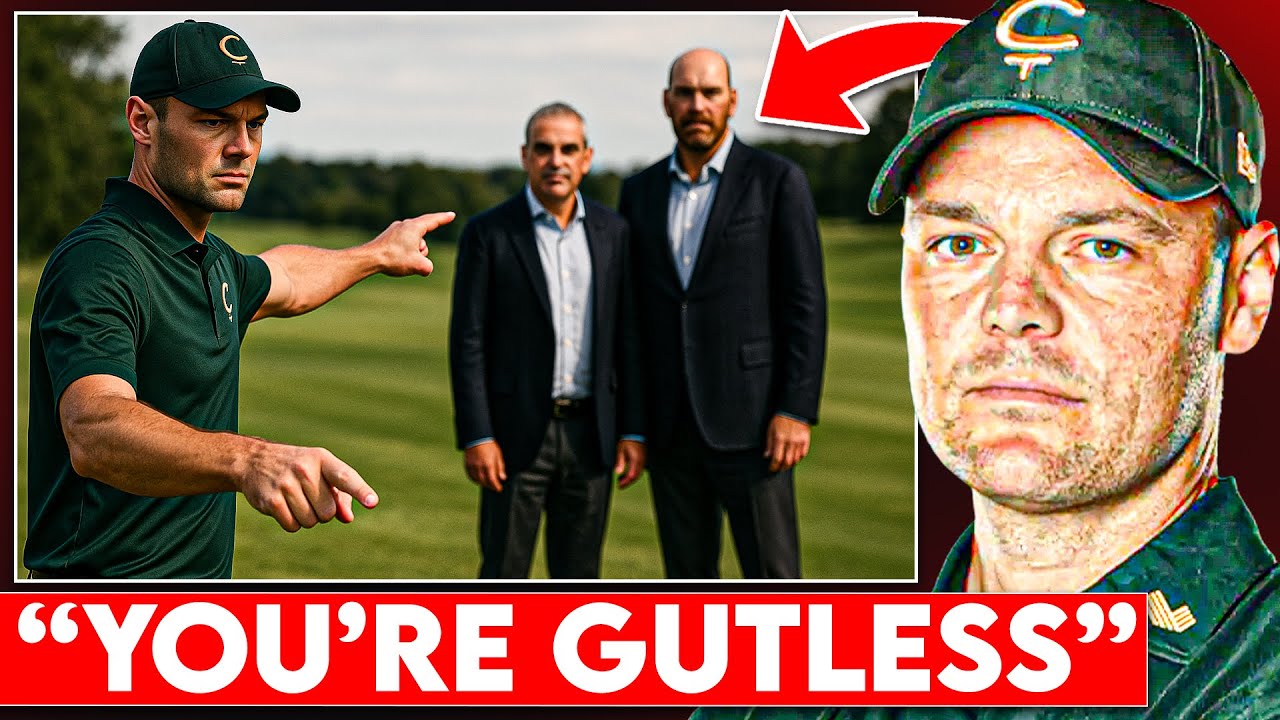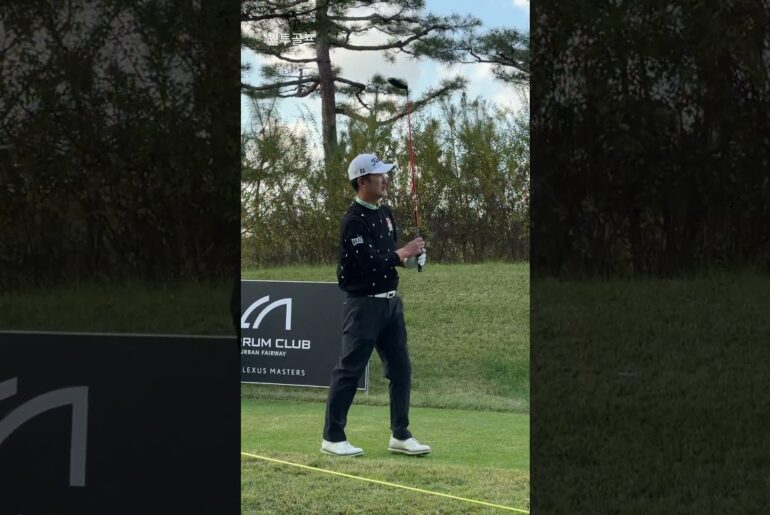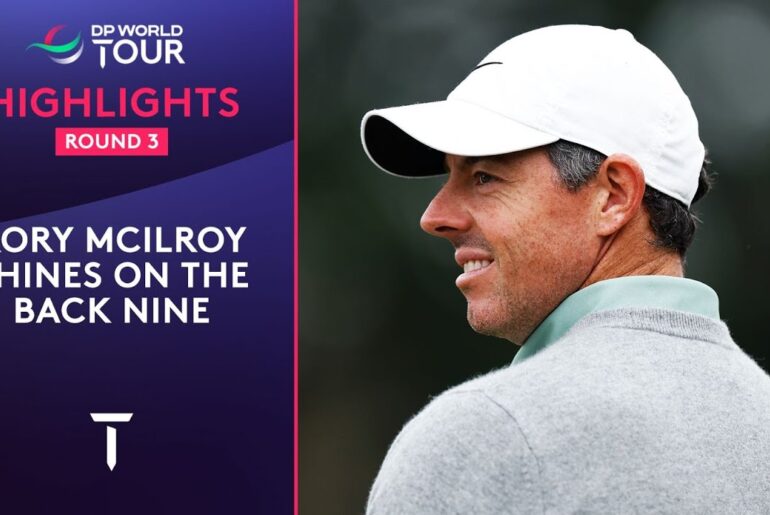#golf #golers #golfcontroversies #putt #golf swing #martinkaymer
Martin Kaymer once stood at the very top of professional golf. He was World Number One. He had two major championships. He was the German pioneer who followed in Bernhard Langer’s footsteps. But then everything fell apart. For over a decade, he couldn’t win a single tournament anywhere in the world. His ranking dropped outside the top 170. People started asking if he was done. Now, at 40 years old, Martin Kaymer has found a new home on LIV Golf as captain of Cleeks GC. This is the story of how a champion learned to rebuild himself.
Martin KR once stood at the very top of professional golf. He was world number one. He had two major championships. He was the German pioneer who followed in Bernhard Langanger’s footsteps. But then everything fell apart. For over a decade, he couldn’t win a single tournament anywhere in the world. His ranking dropped outside the top 170. People started asking if he was done. Now at 40 years old, Martin Kyimer has found a new home on a live golf as captain of Clicks GC. This is the story of how a champion learned to rebuild himself. Born near Dusseldorf in 1984, Martin KR was gifted at both golf and soccer. He made the choice that would define his life when he picked golf at age 20 in 2005. Right away, you could see something special. In 2006, competing on the EPD tour in Germany, he won five times in just 14 events. One of those rounds was a 59 at the Habsburg Classic. That’s when people knew this wasn’t just another good player. His move to the European Tour in 2007 started rough. He missed the cut in his first five tournaments, but when the tour returned to European soil, everything clicked. He made his first cut at the Singapore Masters and tied for third at the Portuguese Open. By the end of that year, he was 41st on the Order of Merit and won the Sir Henry Cotton Rookie of the Year Award. He was the first German ever to receive this honor. The climb was remarkable. By 2008, he had his first European tour win at the Abu Dhabi Golf Championship. In 2010, everything changed. That year at the PGA Championship at Whistling Straits, Camer surprised even himself. He admitted later that his main goal was just to make the cut so he could qualify for the RDER Cup. He started the final round four shots behind Nick Wattney. But something special happened. He finished tied at 11 under with Bubba Watson and won his first major in a playoff. That victory was just the beginning. In February 2011, Martin KR became world number one. He held that ranking for 8 weeks. Think about what that means. For two months, this German golfer was officially the best player in the world. He was only the second German after Bernhard Langanger to win a major championship. He was breaking new ground for his country. The 2012 Rder Cup at Medina showed the world what Martin Kr was made of. Europe needed something special to complete their comeback. They called it the miracle at Medina. When the pressure was at its highest, when everything was on the line, Kr stepped up and hold the winning putt that sealed Europe’s incredible victory. That moment proved he could perform when it mattered most. But his greatest moment was still coming. In 2014, Cammer experienced a remarkable resurgence. First, he won the players championship, one of the most prestigious events in golf. Then came the US Open at Pinehurst number two. This wasn’t just a win. This was dominance. KR led wire towire, becoming only the eighth player ever to achieve this at the US Open. He set a championship record for 36 holes with rounds of 65 to 65. No one had ever opened a major with two rounds of 65 or better. He cruised to an eight-stroke victory over Ricky Fowler and Eric Compton. With that US Open win, Camer joined an exclusive club. Only five players in history have won the US Open, the PGA Championship, and the Players Championship. Tiger Woods, Jack Nicholas, Raymond Floyd, and Lee Trevino were the others. That’s the level Martin Kamer reached. He was among golf’s greatest names. Then came the fall. After his dominant 2014 season, Martin KR entered a period that would test everything he believed about himself. He hasn’t won a tournament anywhere in the world since that US Open triumph. That’s over 10 years without a victory. His world ranking plummeted to 172nd in 2018. What made it worse were the blown leads. In 2015 at Abu Dhabi, he had a six-shot lead after three rounds that grew to 10 shots after five holes in the final round. He shot 70 ball and finished third. At the 2019 Memorial, he held a two-stroke lead after 54 holes, and doubled it early in the final round, but he struggled on the back nine, found water on the 15th, and finished third again. The technical problem started with a critical mistake in 2011. While holding the world number one ranking, KR tried to change his game specifically for the Masters tournament. He wanted to hit draws, low shots, and high shots to suit Augusta National. He later called this a big mistake. The course demanded shots that were just not him. He concluded that he needed to play his game regardless of the course. This misguided attempt resulted in missing the cut at Augusta for the fourth time in four visits. Physical problems made things worse. Kr battled issues with his left wrist that eventually required surgery. This led him to miss the end of the 2022 season. The injury significantly limited his ability to practice with a driver. When you can’t practice effectively due to pain, it directly impacts your ability to make your swing comfortable and repeatable. The mental challenges were just as difficult. Upon reaching world number one in 2011, KR found himself struggling with the pressures of fame. He said it was difficult to understand how people treated him after achieving that status. He needed what he called a personal understanding acceptance transformation to grasp his place and position in the world of golf. Only his brother, father, and coach treated him the same before and after he became world number one. In 2019, Kr directly attributed his performance struggles to distractions and a lack of belief in his own ability. He admitted he distracted himself and listened too much to other people. During this period, he felt he didn’t believe he could win the tournaments he was playing. Social media became a major problem. Kr explained that he found no value except for gossip, innuendo, and otherwise useless information on these platforms. By stepping away from social media, excessive television viewing, and reading unimportant content, he reported experiencing more awareness, becoming more conscious, and achieving more calmness. KR also reflected on his approach to success. He acknowledged that his tendency to not celebrate victories was in retrospect a mistake. He believes that by not celebrating, he didn’t know the value of the win. Celebrating helps give credit to yourself. This observation points to something often overlooked in elite sports, the necessity of emotionally processing and internalizing achievements. Now at 40, Martin Cry has found new purpose on live golf as captain of Clicks GC. His team achieved victory in a team event in Houston in 2024. Despite his past struggles, he retains the competitive spirit that characterized his earlier career and commands respect from his peers and LV golf colleagues. In 2024, Kimer demonstrated his continued ability to compete in major championships, making the cut at both the PGA Championship and the US Open. The statistics tell the story of ongoing challenges. Recent data from his last five starts in 2024 shows an average negative strokes gain total of minus 1.047. His short game remains problematic with negative averages around the green and with pudding, but his approach play continues to be a relative strength. Crucially, KR has stated that he is now pain-free after his wrist surgery. Looking ahead, he expresses confidence in his longevity, believing he has another five or six good years ahead of him. Martin KR’s transition to live golf represents more than just a career move for a veteran player. While it offers financial benefits, it also provides a different competitive environment characterized by a team format, fewer events, and reduced travel. His captaincy role suggests a continued desire for leadership and engagement in the sport beyond individual performance. Martin KR’s legacy extends beyond his moments of peak dominance. His story serves as a valuable case study for understanding the multifaceted demands placed on professional athletes. At 40, Martin Kamer continues to write his story. His continued presence in professional golf, especially in his leadership role as team captain, reflects a mature athlete who remains deeply engaged with the sport. His legacy is defined not merely by his major championships and time as world number one, but equally by his remarkable resilience, his honest reflections on the struggles faced by elite athletes, and his ongoing commitment to the game he loves. Martin Camer’s career reminds us that greatness isn’t just about reaching the top. It’s about how you handle the fall and whether you have the courage to keep climbing.







